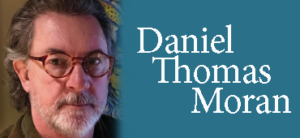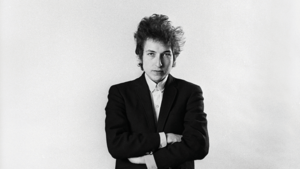Bob Dylan, Nobel Laureate

ONE OF THE MOST SAVAGE reviews ever written was published in 1818 in response to a collection of verse by a somewhat unknown poet. The critic, John Wilson Croker, declared, “the author is a copyist of Mr. [Leigh] Hunt; but he is more unintelligible, almost as rugged, twice as diffuse, and ten times more tiresome and absurd than his prototype.” No one recalls Croker today. The poet he debased is remembered as one of the greatest poets to have written in the English language, one John Keats.
Similar appraisals of the art of others have been offered throughout history, some appropriately so. Yet, it’s startling how many times the critics have gotten it all wrong. The beauty and perhaps the transcendent magic of art is that it can’t be judged in the same way one would judge a mathematical formulation or whether someone has broken a law; art touches us in ways that aren’t easily defined. Keats himself said that “Beauty is truth, truth beauty.” So, if we can’t agree on the value of some work of art—be it poetry, painting, musical composition, or any other artistic endeavor—then how shall we judge its merit?
In every era there are people who challenge the status quo, who challenge accepted practices and definitions, and who do what they feel is right to them, often to their own detriment. Thank goodness for every one of them. In all fields of human endeavor, especially art, progress arrives in the guise of a stranger, a stranger who suggests that perhaps there’s another way to see reality. By their insight, their courage, and their willingness to be criticized, they teach us to see the world and the great landscape within ourselves with different eyes and different ears. People like Vincent Van Gogh and Ludwig van Beethoven, Walt Whitman and Pablo Picasso, and Gertrude Stein and Miles Davis have all made the world seem richer than we could have imagined by being fearless visionaries. Another one of these people is surely Bob Dylan.
No sane person could argue that Dylan, for better or for worse, hasn’t greatly influenced the culture of not only America but likely the world. He may well have done it to a greater degree than any other artist of his era, and he’s done it by taking chances, by trying to find and navigate new paths, by inventing and reinventing himself and his music, and by accepting the opinion of some that he’s an annoying fraud. One would be hard-pressed to find a musician or a composer who isn’t familiar with Dylan’s work, or who hasn’t been influenced or inspired by it.

Bob Dylan (© CC 2.0, Daniel Kramer)
Dylan himself will be the first to admit that not all of his oeuvre is good, and that he might not be the best person to decide such disparity. I recall him being asked once about the meaning of one of his songs, and his response was that it was enough that he had written the thing, it was up to everyone else to say what it meant. The poet W. H. Auden was once asked a similar question and said that if he could have said it any better than he’d said it in the poem, he would have written it that way in the first place. In these seemingly snide and dismissive remarks there is great truth about the interpretation of a work of art. It must ultimately be in the mind and the heart of the person who is experiencing it.
I am deeply moved by Beethoven’s Ninth Symphony, and it happens each time I listen to it: I catch myself from a sob and feel my heart rise up into my throat. Need there be an explanation? I have the same response when I listen to Dylan’s song “The Lonesome Death of Hattie Carroll.” In both these works of musical art there is something so powerful that it exceeds my words to define it.
In many ways, art is an expression of our humanity and the relationship of that humanity with the remainder of existence. It is a celebration of the mystery we all experience in the act of living. Trying to understand the meaning in a sunset or the call of a songbird is of little use. Instead we must let the thing wash over us and enjoy how it makes us feel more alive. I’m no art historian, but I look at a painting by Van Gogh and in some deep way I am invited into the emotional world of Van Gogh. In that world I see familiar faces. One of them is mine.
So what is Bob Dylan: A musician? A singer? A songwriter? A poet? A social reformer? A revolutionary? Some kind of prophet? To me he’s all of those and likely much more. In his songs we can find America and we can find Americans. We can find us. But the question on the lips of many now is, “Bob Dylan, a highly acclaimed literary figure?” I answer with an emphatic yes. So does the Nobel Committee that awarded him the Nobel Prize in literature on October 13 “for having created new poetic expressions within the great American song tradition.” This made many people unhappy, others incredulous, and some furious. How dare he? How dare they?
Most of those who reacted furiously when the award was announced are, not surprisingly, writers, especially poets who feel that their lofty perch has been defiled and diminished by calling Bob Dylan a poet at all. Dylan is indeed a poet, and one can be assured that he sees himself as such. But he is a poet who long ago decided that the effect of his words could be empowered and enhanced by the addition of music and through the sound of his voice and his instruments. Who could possibly argue that he was wrong? I’d argue he was so right that he inspired an uncountable number of others to try their hand, to be something unique, to make art, and even make a life in art. Musicians and songwriters aside, there are many people, myself among them, who were first inspired to attempt writing poetry after an early fascination with Dylan’s lyrics. For years we listened again and again, and over time peeled our way down into deeper and deeper layers of meaning in his words. It became a passion, an obsession, an unquenchable curiosity, the very things that drive art and artists.
I have been asked many times what poetry is and what it is not. My answer is simple: if the person who writes a thing says it’s poetry, then it’s poetry. After all, who else should get to decide these things? Most academics and critics in 1855 said Walt Whitman’s Leaves of Grass wasn’t poetry. Similar notions were shared about the paintings of Picasso and the music of Mozart. The simple fact is that these people were ahead of the rest of us. We needed time to catch up.
When 99.9 percent of the poetry being written today has passed into obscurity, when 99.9 percent of the music we fancy at the moment has evaporated into the din of passing time, there will still be Bob Dylan. People will still be moved and enlightened and inspired by what he’s told us all these years. Does Dylan deserve the Nobel Prize in Literature? You’re damned right he does.
Dylan wrote a love song many years ago called “Sarah.” In it he defined what I still think of as the perfect love of a woman. (I spent my life looking for it and finally did find it.) He sang, “Now the beach is deserted/except for some kelp/ and a piece of an old ship/that lies on the shore. You always responded/when I needed your help/You gave me a map and key to your door.”
That is what Bob Dylan gave to all of us—a map and a key to his door.
